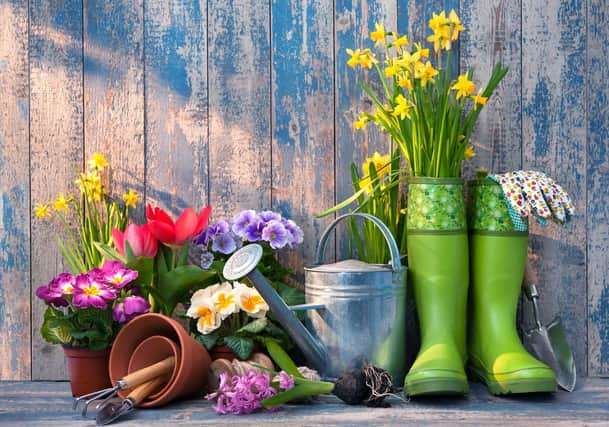5 easy DIY ways to transform your garden - even if you’re a beginner


If you think your garden could do with a bit of a sprucing up but you’ve never tackled a project like it before, then there are plenty of manageable, do-it-yourself improvements you can make.
These are a few tips, tricks, ideas and bits of inspiration for beginner DIY gardeners.
Transform old shelves into a herb garden
Advertisement
Hide AdAdvertisement
Hide AdIf you have an old set of shelves, safely attach or mount them to a stable fence and fill them with terracotta pots in order to create your own vertical herb garden.
You can also do the same with an old pallet or ladder, if you don’t have any old shelves.
Reuse old pans
If you’re about to throw out any old pots and pans, consider if they could be used as planters instead. They are ideal for the outdoors, but before you re-pot your plant, punch a few drainage holes in the bottom.
Put unused bricks to good use
If you have a pile of leftover bricks that you’re not sure what to do with, you can use them to outline the shape of your flower beds by laying them long and sideways in a bed of gravel, in order to create a patterned curve.
You could also do the same with unused small, thin planks of wood.
Use drawers as planters
If you have any old drawers, in particular a chest of drawers, then you could turn them into a garden planter to stagger tiers of plants in.
This is a fun way of adding to something quirky, but easy to your garden.
Hanging baskets
Hanging baskets are a great addition to any garden and are easy for beginners too.
Advertisement
Hide AdAdvertisement
Hide AdB&Q explains, “Hanging baskets are an easy and cost-effective way to brighten your outdoors. They add a seasonal pop of colour that works well hung in your front garden to welcome guests, in your backyard and even from a suitable structure.”
The best time of year to plant a hanging basket depends on what plants it will feature.
For summer bedding plants - plant in late spring as it'll give them a few weeks to establish themselves before making an instant impact when hung outdoorsFor non-tender plants - plant in mid-spring when they'll start to grow properlyFor winter plants - plant in early autumn, around the same time as spring-flowering bulbs
Hanging baskets come in a variety of different styles and materials. Classic options include plastic-coated wire or wicker baskets, but solid-sided baskets that have built-in water reservoirs and are ideal for hot, exposed conditions are becoming increasingly popular.
Lining your basket will also help keep moisture in and stop compost from falling out.
You can keep herbs such as basil, rosemary and thyme, which are all handy for cooking, by hanging them near your kitchen door. The trailing varieties of tomatoes are also perfect for hanging baskets.
You can also plant evergreen shrubs in hanging baskets in order to give them a splash of colour throughout the winter period, and then replant them in pots for the garden in spring.